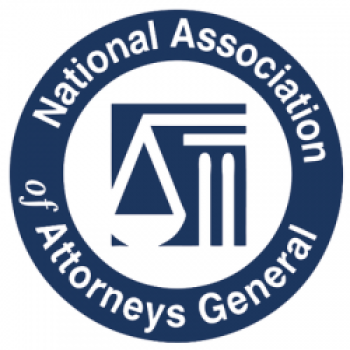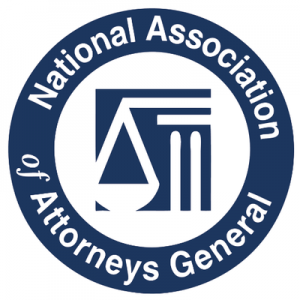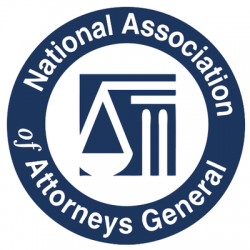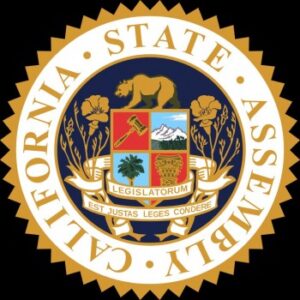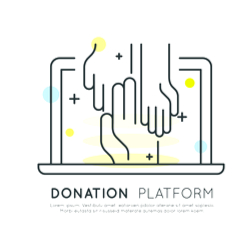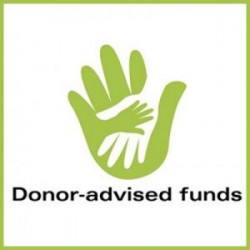Each year the National Association of Attorneys General and National Association of State Charities Officials hold a conference where state regulators, nonprofits, and their advisors can meet and discuss issues that are of interest to the nonprofit community. Traditionally, the first two days of the conference are open to the public and the final day of the conference is exclusively for state charity regulators. This year the conference was a virtual conference and the public days were held on November 17-18. Here are a few topics covered by state regulators and other panelists at the 2020 NAAG/NASCO Conference.
Colleges/Universities
State regulators discussed issues faced by colleges and universities in 2020. Jim Sheehan, Chief of the New York Attorney General’s Charities Bureau, stated that financial hardship faced especially by small liberal arts colleges outside metro areas has led to an increase interest in mergers as a possible solution. He mentioned that his office has witnessed situations where a merger is the only way to save the mission of a financially distressed nonprofit college or university and, in this and similar circumstances where a merger is lawful, his office is generally supportive of this activity.
In addition, regulators are reviewing how colleges or universities forced to close due to the financial strain caused by COVID-19 might implement a teach-out plan for current students (a teach-out plan is an arrangement whereby a college or university provides current students with the opportunity to complete their course of study when the institution closes). Other common issues faced by colleges/universities in 2020 of interest to state regulators include (1) determining the circumstances when it may be appropriate to utilize a larger percentage of a college or university’s endowment fund; (2) whether a financially distressed college or university should borrow from a third party or liquidate otherwise illiquid assets; and (3) under what circumstances a college or university can remove donor-imposed restrictions on charitable contributions.
The NY Charities Bureau plans to issue guidance on the use of endowment funds for institutions facing financial challenges during COVID-19. Massachusetts has already released similar guidance.
Tanya Ibanez, Senior Assistant Attorney General in the California Attorney General’s Office of Charitable Trusts, mentioned that the California Attorney General is looking closely at for-profit schools converting to non-profit organizations.
Crowdfunding
State regulators are still considering carefully how to regulate crowdfunding platforms. Ms. Ibanez briefly discussed the California Attorney General’s support of California Assembly Bill 2208, which recently died in committee. Generally, the bill required charitable fundraising platforms to register and file annual reports with the California Attorney General’s Registry of Charitable Trusts before soliciting, permitting, or enabling solicitations in California. Ms. Ibanez said that she anticipates that a similar bill will be introduced in the California legislature’s next legislative session.
In the context of discussing regulation of crowdfunding, Leslie Friedlander, Assistant Attorney General in the Texas Attorney General’s Office, reminded listeners of the recent PayPal Giving Fund settlement entered into between PayPal Giving Fund and twenty-two (22) state attorneys general. A summary of that settlement and its implications, PayPal Giving Fund Enters Multi-State Settlement, was written by my colleague Karen Wu. Ms. Friedlander also teased upcoming donor-facing guidance on crowdfunding to be released by NAAG/NASCO in the near future. The FTC has released guidance for donors on giving through an online giving portal.
Form 990 Reporting
State charity regulators are taking advantage of the increased availability and searchability of data about charitable organizations, particularly data filed with the IRS on Form 990, to find organizations that may warrant closer is scrutiny.
Mr. Sheehan explained that organizations which disclose governance weaknesses on Form 990, Part VI, are more likely to have other governance problems such as weak internal controls that can lead to serious problems of interest to regulators. He recommended that, in addition to Part VI, tax practitioners should pay particular attention to Form 990 Schedules J (Compensation Information), L (Transactions with Interested Persons) and O (Supplemental Information). Organizations should ensure information on these schedules is complete, correct, and that an organization does not simply copy and paste information on these schedules from year to year.
Ms. Ibanez added that two additional areas of interest to regulators are the percentage of total contributions received as gifts-in-kind and joint cost allocations. She mentioned that if, for example, an organization receives 70%-80% of total contributions as gifts-in-kind then that organization is likely on the California Attorney General’s radar for a potential audit to determine whether those gifts are being properly valued.
Donor-Advised Funds
Speakers also discussed issues that regulators are grappling with when it comes to contributions made to and from donor advised funds.
Carol Washington, Manager of the Minnesota Attorney General Charities Division, shared how her office recently engaged with the Minnesota Council of Nonprofits to discuss areas of mutual public policy focus with respect to donor advised funds. The Minnesota Council of Nonprofits prepared an extensive white paper on the operation of donor advised funds, including policy recommendations on how the state might regulate donor advised funds to improve transparency and ensure that the original donor’s intent is respected.
Board Engagement During COVID-19
In answer to a question about the need for increased board engagement during COVID-19, Eunice Nakamura, General Counsel, Susan G. Komen, emphasized the importance of the board meeting early and often and encouraging board members to be proactive in discussing strategies that can be implemented and actions that can be taken now that will help the organization to weather this crisis now and into the future. Courtney Aladro, Chief of the Non-Profit Organizations Division of the Massachusetts Attorney General’s Office, mentioned that another way boards have increased engagement during COVID-19 is to create specific committees focused on issues raised by the pandemic.
Incentive-Based Executive Compensation
Ms. Aladro was asked for her thoughts on organizations that approve incentive-based compensation in order to reward nonprofit executives for staying with the organization through the difficult circumstances presented by the COVID-19 pandemic. She explained that, even assuming the compensation was reasonable, a regulator might still raise questions about such an arrangement if, for example, the organization has offered such incentive-based compensation but at the same time has made the decision to lay-off lower paid workers in order to keep the organization afloat.
Virtual/Online Events
Sara Hall, Chief Legal Officer at St. Jude Children’s Research Hospital, discussed some very practical lessons her team has learned switching from in-person to virtual fundraising events. These include: (1) obtaining all trademark clearances (for event names, hashtags, etc.) and music licenses for the event; (2) vetting and engaging a vendor with experience facilitating multi-channel, multi-platform content; (3) projecting attendance (Ms. Hall mentioned that this is particularly difficult with virtual events since there is generally no translation from in-person events); and (4) being aware of that spammers and fake websites may pop-up prior and during the event. It is important to be ready to address these issues during the event in real time.
With respect to digital engagement, Ms. Hall reminded listeners not to forget about required disclosures when engaging an influencer as part of a virtual fundraising event. For more on that subject read Influencer Philanthropy and Social Media – What are the Rules, What are Best Practices? by my colleague Jeremy Coffey.
Online Fundraising – Charleston Principles
Brian Armstrong, Deputy Attorney General at the California Department of Justice, discussed regulation of online fundraising. He pointed listeners to the Charleston Principles (which he said is generally consistent with personal jurisdiction case law) to determine when registration may be required due to online activity. For more on this topic, please see Karen Wu’s excellent article recently published in The Nonprofit Quarterly.
-
Perlman & Perlmanhttps://www.staging-perlmanandperlman.com/author/nancyisrael/
-
Perlman & Perlmanhttps://www.staging-perlmanandperlman.com/author/nancyisrael/
-
Perlman & Perlmanhttps://www.staging-perlmanandperlman.com/author/nancyisrael/
-
Perlman & Perlmanhttps://www.staging-perlmanandperlman.com/author/nancyisrael/

